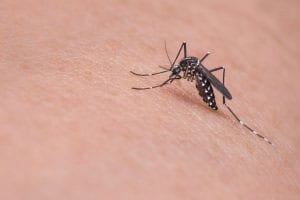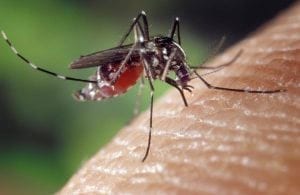Malaria
What is malaria?
Malaria is a mosquito-borne illness, and it is caused by a parasite. It is a severe disease, but with proper treatment recovery is possible.
There are about 1,700 cases in the United States every year, but they typically originate in places where the disease is more common, such as sub-Saharan Africa and South Asia.
What are the symptoms of malaria?
Symptoms of malaria include high fevers, flu-like symptoms, headaches, nausea, vomiting, muscle pain, fatigue, and shaking chills. People may also experience sweating, chest pain, abdominal pain, and coughing.
While some constantly feel the effects, others experience malaria “attacks.” These attacks consist of periods of intense symptoms, usually beginning with shivering and chills.
Malaria can also result in serious complications if left untreated. These complications include cerebral malaria, breathing issues, organ failure, anemia, and low blood sugar. These complications can be severe and lead to death.
What causes malaria?
A microscopic parasite is responsible for malaria. Mosquito bites are the most common way in which the parasite is transferred to humans. Other ways that malaria is transmitted are from mother to child, through blood transfusions, and through sharing needles.
There are also risk factors that people should be aware of, such as travel in countries where the disease is common. These countries include African countries that are south of the Sahara, Asia, New Guinea, the Dominican Republic, and Haiti.
How is malaria diagnosed?
Malaria is diagnosed through a finding of characteristic symptoms, evaluation of medical and family history, and blood tests. Blood tests can show if the parasite is present in the blood, what type of malaria one has, and if the parasite is resistant to certain medications.
What are the treatments for malaria?
Treatment consists of medications that kill the parasite. These medications include artemisinin-based combination therapies and chloroquine phosphate.
There are also ways to prevent malaria. If one travels to an area of the world where malaria is common, they should cover their skin, apply insect repellent, and sleep under a net. Preventative medicines may also be an option.
Where can I find out more about malaria?
Malaria Articles

5 Locally Acquired Malaria Cases Have Been Identified in the US for the First Time in 20 Years

Mapping the Immune Response to P. Falciparum Explains How Malaria Evades Treatment









